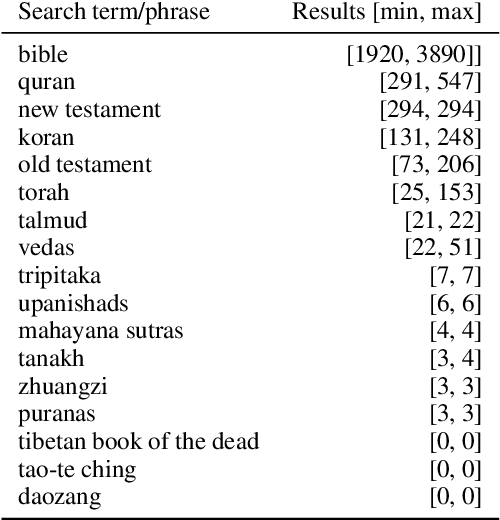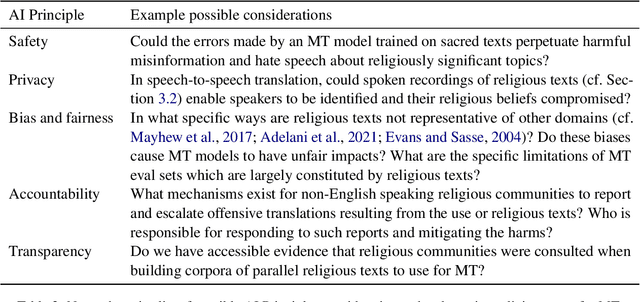Modeling the Sacred: Considerations when Using Considerations when Using Religious Texts in Natural Language Processing
Paper and Code
Apr 23, 2024



This position paper concerns the use of religious texts in Natural Language Processing (NLP), which is of special interest to the Ethics of NLP. Religious texts are expressions of culturally important values, and machine learned models have a propensity to reproduce cultural values encoded in their training data. Furthermore, translations of religious texts are frequently used by NLP researchers when language data is scarce. This repurposes the translations from their original uses and motivations, which often involve attracting new followers. This paper argues that NLP's use of such texts raises considerations that go beyond model biases, including data provenance, cultural contexts, and their use in proselytism. We argue for more consideration of researcher positionality, and of the perspectives of marginalized linguistic and religious communities.
 Add to Chrome
Add to Chrome Add to Firefox
Add to Firefox Add to Edge
Add to Edge